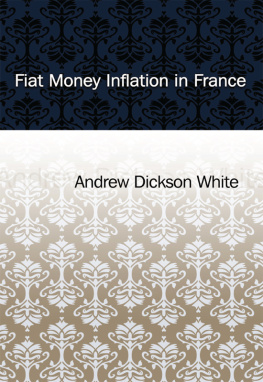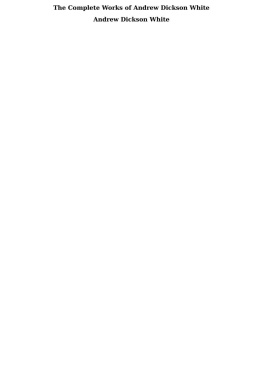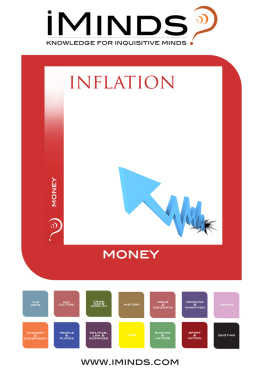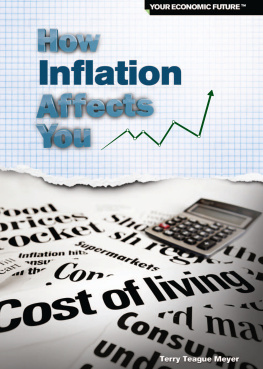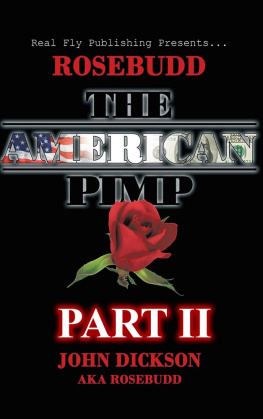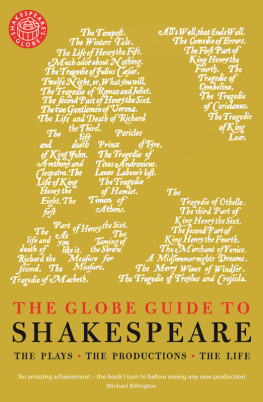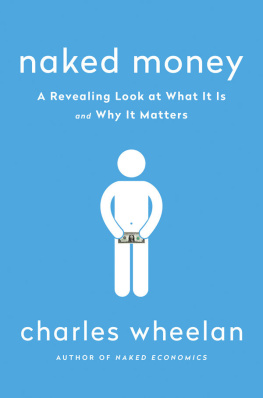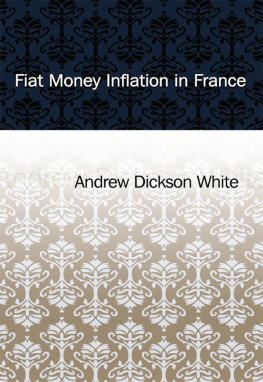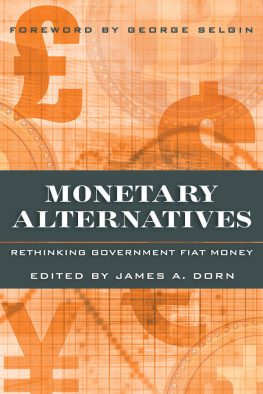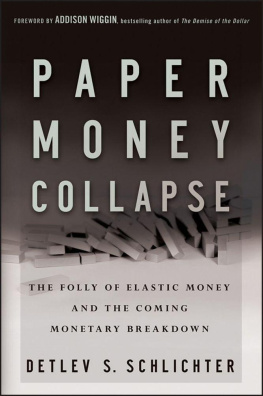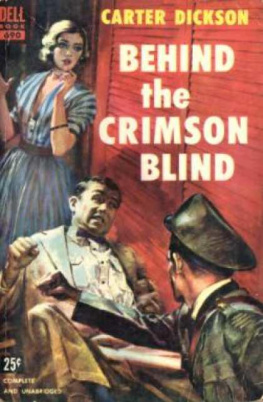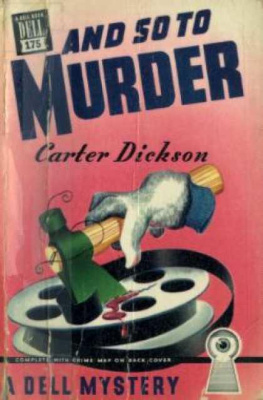FIAT MONEY INFLATION
IN FRANCE
SPECIAL EDITION FOR
BANK OF NEW YORK & TRUST COMPANY
Established 1784
FIAT MONEY INFLATION
IN FRANCE
How It Came, What It Brought, and
How It Ended
BY
ANDREW DICKSON WHITE, LL.D., Ph.D., D.C.L.
Late President and Professor of History at Cornell University; Sometime United States Minister to Russia and Ambassador to Germany; Author of A History of the Warfare of Science with Theology, etc.

D. APPLETON-CENTURY COMPANY
INCORPORATED

Copyright, 1896, by
D. APPLETON AND COMPANY
Copyright, 1923, by
MRS. ANDREW D. WHITE
All rights reserved. This book, or parts
thereof, must not be reproduced in any
form without permission of the publisher.
Printed in the United States of America
INTRODUCTION
As far back as just before our Civil War I made, in France and elsewhere, a large collection of documents which had appeared during the French Revolution, including newspapers, reports, speeches, pamphlets, illustrative material of every sort, and, especially, specimens of nearly all the Revolutionary issues of paper money,from notes of ten thousand livres to those of one sou.
Upon this material, mainly, was based a course of lectures then given to my students, first at the University of Michigan and later at Cornell University, and among these lectures, one on Paper Money Inflation in France.
This was given simply because it showed one important line of facts in that great struggle; and I recall, as if it were yesterday, my feeling of regret at being obliged to bestow so much care and labor upon a subject to all appearance so utterly devoid of practical value. I am sure that it never occurred, either to my Michigan students or to myself, that it could ever have any bearing on our own country. It certainly never entered into our minds that any such folly as that exhibited in those French documents of the eighteenth century could ever find supporters in the United States of the nineteenth.
Some years later, when there began to be demands for large issues of paper money in the United States, I wrought some of the facts thus collected into a speech in the Senate of the State of New York, showing the need of especial care in such dealings with financial necessities.
In 1876, during the greenback craze, General Garfield and Mr. S. B. Crittenden, both members of the House of Representatives at that time, asked me to read a paper on the same general subject before an audience of Senators and Representatives of both parties in Washington. This I did, and also gave it later before an assemblage of men of business at the Union League Club in New York.
Various editions of the paper were afterward published, among them, two or three for campaign purposes, in the hope that they might be of use in showing to what folly, cruelty, wrong and ruin the passion for fiat money may lead.
Other editions were issued at a later period, in view of the principle involved in the proposed unlimited coinage of silver in the United States, which was, at bottom, the idea which led to that fearful wreck of public and private prosperity in Prance.
For these editions there was an added reason in the fact that the utterances of sundry politicians at that time pointed clearly to issues of paper money practically unlimited. These men were logical enough to see that it would be inconsistent to stop at the unlimited issue of silver dollars which cost really something when they could issue unlimited paper dollars which virtually cost nothing.
In thus exhibiting facts which Bishop Butler would have recognized as confirming his theory of The Possible Insanity of States, it is but just to acknowledge that the French proposal was vastly more sane than that made in our own country. Those French issues of paper rested not merely on the will of a free people, but on one-third of the entire landed property of France; on the very choicest of real property in city and countrythe confiscated estates of the Church and of the fugitive aristocracyand on the power to use the paper thus issued in purchasing this real property at very low prices. * * *
I have taken all pains to be exact, revising the whole paper in the light of the most recent publications and giving my authority for every important statement, and now leave the whole matter with my readers.
At the request of a Canadian friend, who has expressed a strong wish that this work be brought down to date, I have again restudied the subject in the light of various works which have appeared since my earlier research,especially Levasseurs Histoire des classes ouvrires et de lindustrie en France,one of the really great books of the twentieth century;Dewarmins superb Cent Ans de numismatique Franaise and sundry special treatises. The result has been that large additions have been made regarding some important topics, and that various other parts of my earlier work have been made more clear by better arrangement and supplementary information.
ANDREW D. WHITE.
Cornell University,
September, 1912.
FOREWORD BY MR. JOHN MACKAY
I am greatly indebted to the generosity of Mr. Andrew D. White, the distinguished American scholar, author and diplomatist, for permission to print and to circulate privately a small edition of his exceedingly valuable account of the great currency-making experiment of the French Revolutionary Government. The work has been revised and considerably enlarged by Mr. White for the purpose of the present issue.
The story of Fiat Money Inflation in France is one of great interest to legislators, to economic students, and to all business and thinking men. It records the most gigantic attempt ever made in the history of the world by a government to create an inconvertible paper currency, and to maintain its circulation at various levels of value. It also records what is perhaps the greatest of all governmental effortswith the possible exception of Diocletiansto enact and enforce a legal limit of commodity prices. Every fetter that could hinder the will or thwart the wisdom of democracy had been shattered, and in consequence every device and expedient that untrammelled power and unrepressed optimism could conceive were brought to bear. But the attempts failed. They left behind them a legacy of moral and material desolation and woe, from which one of the most intellectual and spirited races of Europe has suffered for a century and a quarter, and will continue to suffer until the end of time. There are limitations to the powers of governments and of peoples that inhere in the constitution of things, and that neither despotisms nor democracies can overcome.
Legislatures are as powerless to abrogate moral and economic laws as they are to abrogate physical laws. They cannot convert wrong into right nor divorce effect from cause, either by parliamentary majorities, or by unity of supporting public opinion. The penalties of such legislative folly will always be exacted by inexorable time. While these propositions may be regarded as mere commonplaces, and while they are acknowledged in a general way, they are in effect denied by many of the legislative experiments and the tendencies of public opinion of the present day. The story, therefore, of the colossal folly of France in the closing part of the eighteenth century and its terrible fruits, is full of instruction for all men who think upon the problems of our own time.

